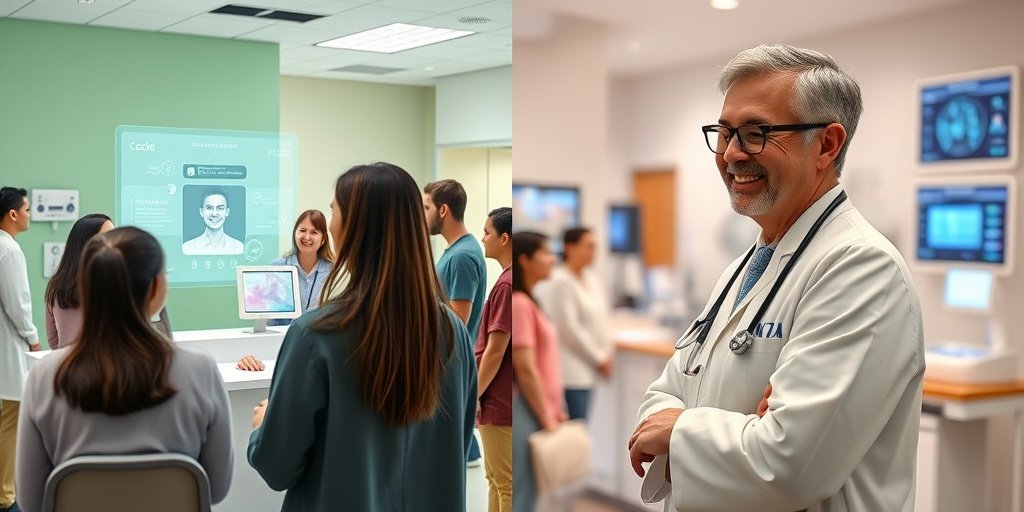Introduction
A virtual medical receptionist named Cassie, developed at Texas A&M University, is changing how patients engage with healthcare providers.
About Cassie
Cassie is a digital assistant created by Humanate Digital, a startup co-founded by Texas A&M alumni, including Dr. Mark Benden, a professor at the Texas A&M School of Public Health.
- Can communicate in over 100 languages, including American Sign Language.
- Utilizes facial recognition to emulate human emotions, making interactions more relatable.
Functionality
Cassie is currently being tested in various clinics to assist with:
- Patient check-ins
- Requesting medical records
- Guiding users through paperwork
Dr. Benden emphasizes that the goal is not to replace healthcare professionals but to handle repetitive administrative tasks that consume valuable time.
Acknowledgments
At the recent Texas A&M New Ventures Competition, Humanate won the grand prize, which included $35,000 in funding and several investment offers for the Cassie technology.
Emotional Intelligence
Unlike traditional kiosks or chatbots, Cassie offers a two-way interaction that resembles a conversation:
- Can adjust its tone based on the user’s emotional state.
- Can engage in light-hearted banter, such as telling dad jokes.
- Can adopt a serious demeanor when discussing sensitive topics, like a cancer diagnosis.
Future Applications
Humanate is also developing a cartoon-style avatar named Oliver for pediatric care, aimed at helping children navigate medical procedures in a comforting manner.
Development Background
Initially conceived during the COVID-19 pandemic as a training tool for remote workers, Cassie has evolved into a sophisticated AI assistant, thanks to advancements in large language models and a partnership with NVIDIA.
Dr. Benden noted that prior to these advancements, responses had to be manually programmed, whereas Cassie can now understand various accents and languages, providing more intelligent interactions.
Addressing Healthcare Challenges
Cassie aims to alleviate administrative burdens and staffing shortages, particularly in rural areas:
- Can operate 24/7 without breaks or distractions.
- May not immediately reduce healthcare costs but can enhance clinic efficiency.
- Helps free up clinicians to focus on patient care rather than paperwork.
Conclusion
The collaboration with NVIDIA has been crucial in advancing Cassie’s capabilities, transitioning it from a prototype to a deployable product. As Texas A&M continues to innovate, Cassie represents a significant step towards improving patient care and operational efficiency in healthcare.
